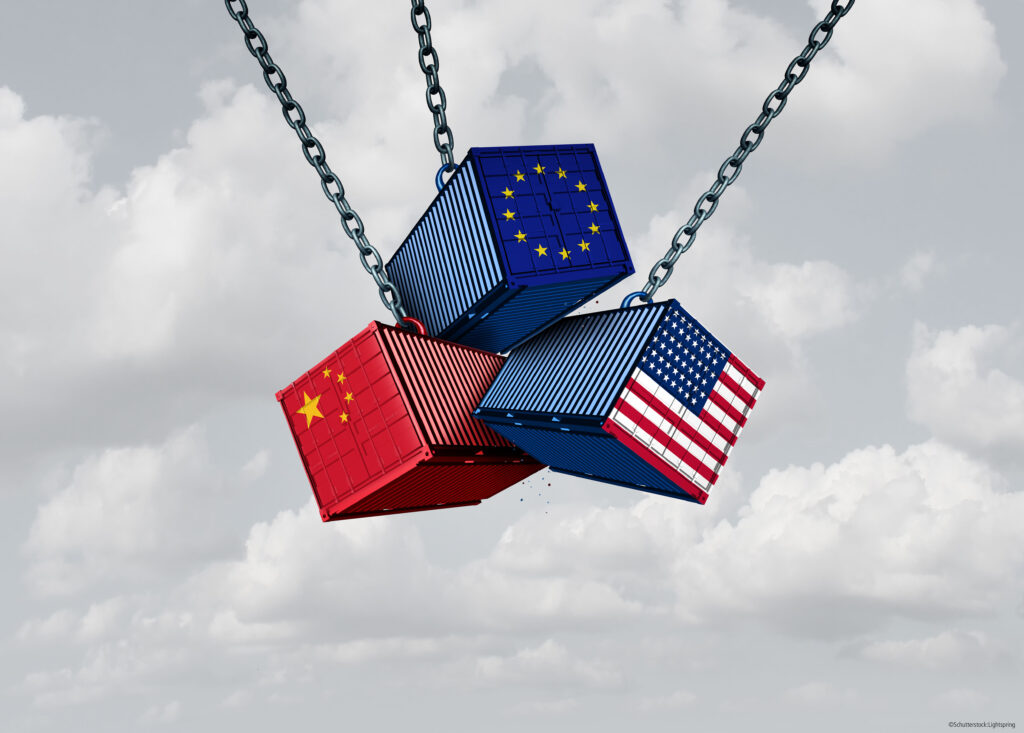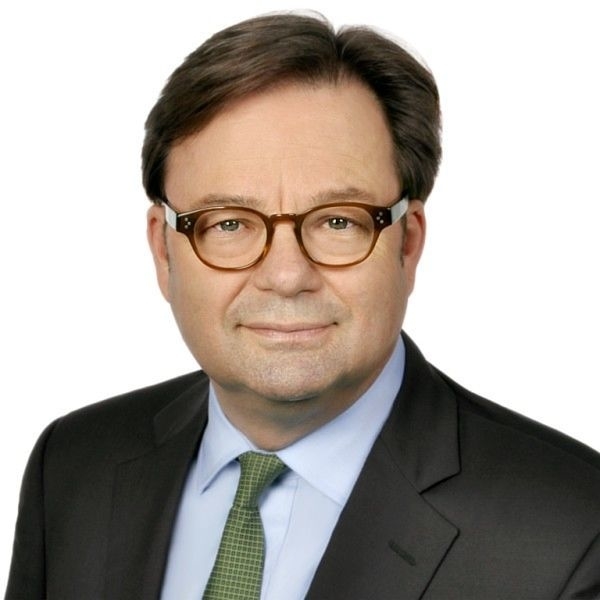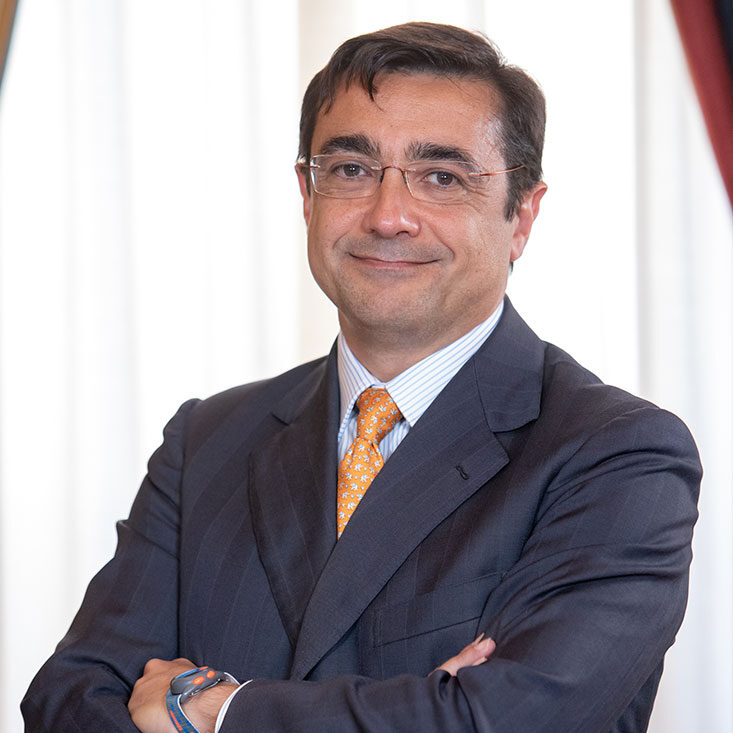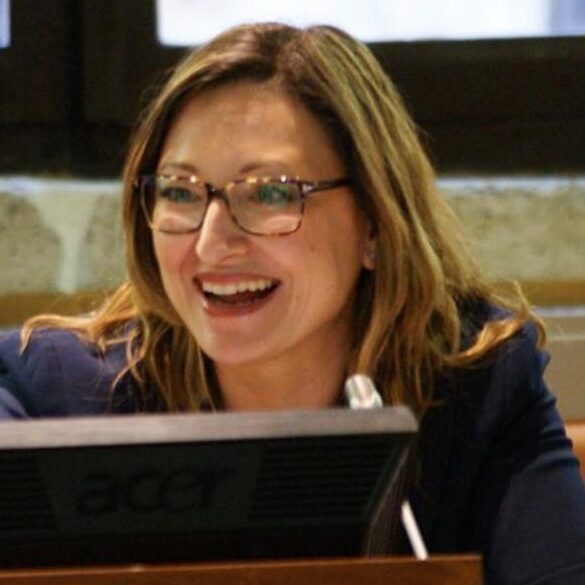
The European University Institute (EUI) cordially invites you to join a cycle of online seminars to debate the impact of the economic crisis caused by COVID-19 on economic protectionism and nationalism. In particular, the webinar series aims to add to the debate on the impact of the coronavirus crisis on foreign direct investments and on the system of merger control in Europe.
The online seminars are organised by the EUI in the context of the Florence Competition Programme (FCP). The seminars take place on Thursday, lunchtime, via the Zoom platform. Participation in the webinars is free of charge. However, prior online registration to each webinar is required.
National champions and merger control during COVID-19
Thursday, 25th February 2021, 1.00 – 2.15 PM CET
Merger control and industrial policy often conflict with each other: while national governments traditionally favour mergers among large corporations, arguing that the newly established ‘national champion’ will be able to compete more effectively with foreign corporations, merger control aims at preventing ‘large’ economic concentrations that could harm consumer welfare in the long term. The 2019 European Commission decision to block the merger between Alstom and Siemens is a good example of such a conflict. After having blocked the transaction, Germany and France openly criticised the decision taken by the European Commission.
During the economic crisis caused by COVID-19, the European Commission seems to have become ‘more open’ to arguments in favour of the establishment of ‘European champions’. In July 2020, for instance, the Commission approved the PKN Orlen’s acquisition of Grupa Lotos. By authorising, subject to conditions, the merger between these two State-owned companies, the Commission allowed the establishment of a new ‘champion’ in the Polish energy market; an approach rather different in comparison to that one followed in the Alstom-Siemens case.
The object of the webinars is to discuss the increasing conflict between industrial policy and merger control in the contest of the COVID-19 economic crisis. The seminar aims, in particular, to analyse the recent European Commission merger control decisions, in order to understand whether and to what extent the EU executive is ‘softening’ its traditional approach in the field of merger control, in order to favour the establishment of ‘European champions’.
Moderator
Panellists
Foreign Direct Investments in the post-COVID world
Thursday, 11th March 2021, 1.00 – 2.15 PM CET
During recent years, Chinese State-Owned Enterprises (SOEs) have engaged in a series of corporate acquisitions in Europe, causing widespread concerns in Europe. In particular, firms holding cutting edge technologies and key security infrastructures would be acquired by foreign State-owned companies, by thus potentially increasing Chinese political and economic influence in Europe.
In April 2019, the European Union adopted the FDI Screening Regulation, which entered into force in October 2020. Under the new legislation, EU Member States exchange information concerning ongoing FDIs, while the European Commission may issue an opinion if the acquisition involves a firm that benefits from EU-funded projects (e.g. Galileo, Trans-European Networks). In order to enforce the new FDI Screening Reg., a number of EU Member States (e.g. Poland and Romania) have granted to the National Competition Authority (NCA) the task of scrutinising FDIs from non-EU firms. These agencies should assess these FDIs in the contest of the merger control review, by thus including public policy considerations into the merger review.
The online seminar is proposed to discuss how the FDI Screening Regulation will be enforced in the contest of the increasing economic protectionism that characterizes the world since the start of COVID-19 crisis. Secondly, the question is how the new FDI control mechanism will interact with the existing merger control rules in the EU.
Moderator
Panellists
Failing firm defence in times of COVID-19 economic crisis
Thursday, 25th March 2021, 1.00 – 2.15 PM CET
Under the EU merger control rules, a concentration that involves the acquisition of a ‘failing firm’ is subject to a ‘more lenient’ assessment by the competition agency, if: the failing firm is expected to exist the market in the near future; there is no less anti-competitive alternative than saving the failing firm from bankruptcy; without the acquisition, the assets controlled by the failing firm would ‘exit the market’ (i.e. they would be dispersed). These 3 conditions imply a high burden of proof for the merging parties: the European Commission and National Competition Authorities (NCAs) rarely authorise an anti-competitive concentration due to the failing firm defence.
Since the outbreak of COVID-19 pandemic, the European economy has faced the deepest economic recession since World War II. In the short run, the large aids schemes deployed by the EU Member States have limited the negative effects of the lock-down measures, adopted by national governments to limit the spread of the pandemic. In the long term, however, the aid schemes will end and a large number of firms will probably face insolvency proceedings. In order to safeguard employment, the European Commission and the NCAs will probably face a strong political pressures to make ‘more lenient’ the review of acquisitions involving failing firms.
The question discussed during the online seminar is whether, and to what extent, the competition agencies should modify the current approach to the application of the failing firm defence, in view of the exceptional economic crisis caused by COVID-19.
Moderator
Panellists

 Maciej Bernatt
Maciej Bernatt Jean-François Bellis
Jean-François Bellis Harald Kahlenberg
Harald Kahlenberg Angela Huyue Zhang
Angela Huyue Zhang Alexandr Svetlicinii
Alexandr Svetlicinii Margarida Afonso
Margarida Afonso Sandra Marco Colino
Sandra Marco Colino Francesco Maria Salerno
Francesco Maria Salerno Tommaso Valletti
Tommaso Valletti Assimakis Komninos
Assimakis Komninos Pierre Régibeau
Pierre Régibeau Alessandra Rossi
Alessandra Rossi

